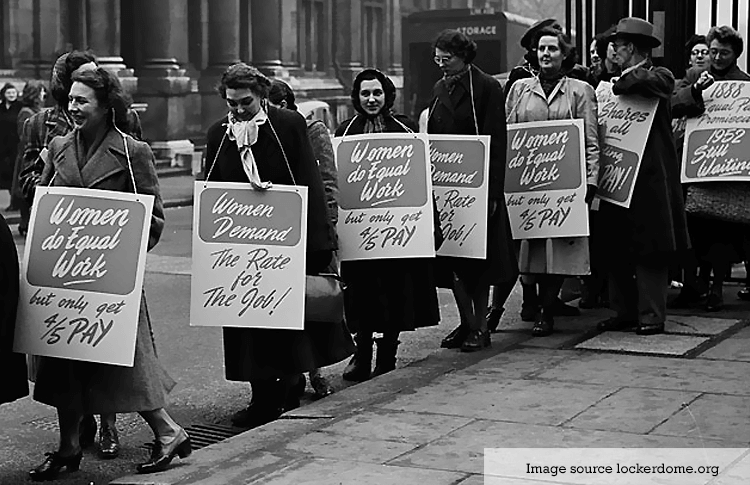Does the law in India provide for equal pay?
- IWB Post
- April 16, 2015

You have already figured out how big the pay gap in India is, and what factors make it grow further. So, what about law now? Does it provide that women get paid equally?Yes, various Articles of the Constitution of India attempt to ensure that there is no prevalence of gender pay gap. Specific legislations also address gender pay gap.
- Article 14: Men & women to have equal rights & opportunities in the political, economic & social spheres.
- Article 15(1): Prohibits discrimination against any citizen on the grounds of religion, race, caste, sex etc.
- Article 15(3): Special provision enabling the State to make affirmative discriminations in favour of women.
- Article 16: Equality of opportunities in matter of public appointments for all citizens.
- Article 39(a): The State shall direct its policy towards securing all citizens men and women, equally, the right to means of livelihood.
- Article 51 (A) (e): To renounce the practices derogatory to the dignity of women.
Has the Indian Government passed Acts in order to ensure equal pay and equal treatment at workplace?
- Workmen’s Compensation Act, 1923:
- Aimed at providing financial protection to the workmen & his / her dependants in case of accidental injury by means of payment of compensation by a certain class of employers.
- Due to the difference in bargaining power there are chances that the woman may be subject to exploitation. This act helps to avoid that risk.
- Minimum Wages Act, 1948: To provide for a statutory fixation of minimum wages, since workers are poorly organized & have a less bargaining power in India. There is no different wages paid for women workers.
- Factories Act, 1948: Introduced to regulate the condition of labourers employed in the factories.
- Contract Labour (Regulation and Abolition) Act, 1970: Provides for the separate provision for utilities and fixed working hours for women.
- Equal Remuneration Act of 1976
- Provides for equal pay to men & women for equal work.
- Act was enacted keeping in mind the unequal physical & sociological burden a woman faces at the time of child bearing & rearing.
Yes, the law is there. JWB believes that it is not only upto women to fight this gender issue. It needs the associative effort from the side of employer and employee. Some of the steps that you can undertake right now:
1. Ask for Salary Openness. Knowing the salary state in your office will help you realize where you stand yourself.
2. Educate Yourself. When you know what’s going on, you’ll be able to pass that information along to others. Plus, when it comes to advocating for yourself, it pays to be up to date with market data for you job.
3. Know your worth. Research the market and how much companies are ready to pay for your position.
4. Use the power of your voice on social media. And it is ok if you are one of the firsts who will rise the voice in India. It is ok if you are not a celebrity. The others will follow. Hence, it is not only your problem. If you don’t know how, turn to these resources: read about Levo League’s #ask4more campaign and follow them at @levoleague. You can use these photos and videos when you post with the hashtag #ask4more, and here’s a sample tweet to get you started.
5. Pay It Forward. Continue the conversation about equal pay with young people, especially your children. They are the next generation of activists.
- 0
- 0











